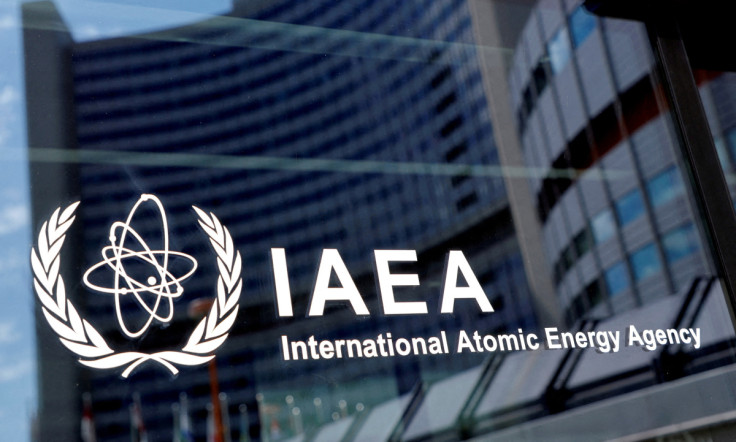IAEA Says No Evidence Of Ukraine Using 'Dirty Bomb' Against Russia
KEY POINTS
- Following Russia's accusations, Ukraine invited inspectors from IAEA to visit the sites
- The UN agency said there are no indications of 'undeclared nuclear activities and materials' in Ukraine
- Western governments had rejected Russia's claims as 'transparently false'
The UN nuclear watchdog IAEA on Thursday said that its inspectors found no evidence to support Russia's claim that Ukraine planned to build and detonate a radioactive "dirty bomb" with the intent of blaming it on Moscow.
According to the International Atomic Energy Agency (IAEA), its team found no indications of "undeclared nuclear activities and materials" in Ukraine.
"Our technical and scientific evaluation of the results we have so far did not show any sign of undeclared nuclear activities and materials at these three locations. Additionally, we will report on the results of the environmental sampling as soon as possible," said IAEA Director General Rafael Mariano Grossi in a statement Thursday.
Since late October, Russian President Vladimir Putin, Defense Minister Sergei Shoigu and other officials in the country have repeatedly claimed that Ukraine was using or is planning to use a "dirty bomb."
A "dirty bomb" is a type of radiological dispersal device (RDD) laced with radioactive, biological, or chemical materials. It is used to disseminate radioactive material over a certain area.
Late last month, Shoigu had called his French, British and Turkish counterparts to share concerns about Ukraine's possible provocations. The Russian defense minister also spoke to his Indian and Chinese counterparts, voicing similar concerns.
Following Russia's allegations, the U.K., U.S., and French foreign ministers released a joint statement, saying, "Our countries made clear that we all reject Russia's transparently false allegations... The world would see through any attempt to use this allegation as a pretext for escalation."
Ukraine | Joint Statement by Foreign Ministers of France, the United Kingdom and the United States#Ukraine #Russia pic.twitter.com/PLYDW1ORKP
— France Diplomacy🇫🇷🇪🇺 (@francediplo_EN) October 24, 2022
Russia had also raised the issue during a closed-door meeting of the 15-member body UN Security Council.
"We're quite satisfied because we raised the awareness," Russia's Deputy U.N. Ambassador Dmitry Polyanskiy told reporters at the UN at the time. "I don't mind people saying that Russia is crying wolf if this doesn't happen because this is a terrible, terrible disaster that threatens potentially the whole of the Earth."
Reacting to Russia's claims, Ukrainian President Volodymyr Zelensky echoed the Western sentiment and raised concerns that Moscow may use allegations of a "dirty bomb' as a pretext to carry out a false flag operation.
"If Russia calls and says that Ukraine is allegedly preparing something, it means one thing: Russia has already prepared all this," Zelensky said, adding, "I believe that now the world should react in the toughest possible way."
Following Russian accusations, Ukraine had invited inspectors from IAEA to visit the sites alleged to be involved in undeclared nuclear activities. The IAEA release said its inspectors completed their in-field verification activities at three locations in Ukraine based on the request by Kyiv.
The locations were the Institute for Nuclear Research in Kyiv, Eastern Mining and Processing Plant in Zhovti Kody, and Production Association Pivdennyi Machine-Building Plant in Dnipro, the IAEA release stated.

© Copyright IBTimes 2024. All rights reserved.






















